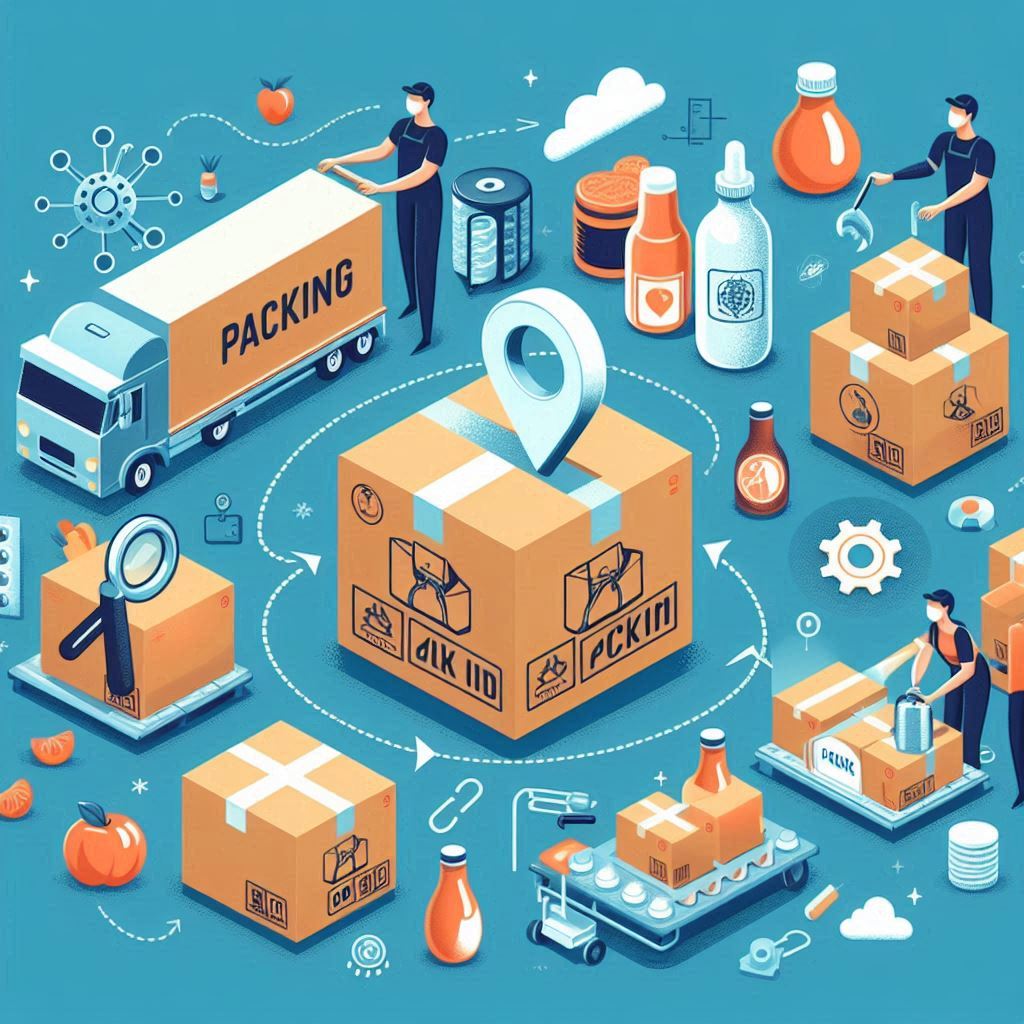What is packing and co-packing? Translation and definitions you need to know
The term packing is increasingly common in the logistics and e-commerce industries. In today's rapidly changing business reality, understanding the concepts of packing and handling goods is becoming crucial to business growth. In this article, we will explain exactly what the word packing means, what co-packing is, and how these services can help your business grow.
What does the word packing mean?
Packing (from "to pack") is a term used to describe a range of activities involved in packing and preparing goods for shipment. In practice, packing includes not only the packing of products themselves, but also sorting, labeling and protecting them from damage during the transportation. It is an essential element of any logistics process, without which it would be impossible for modern commerce to function smoothly.

What is co-packing and how does it differ from regular packing?
Co-packing is a more advanced form of packaging services provided by an external logistics company. Co-packing service includes comprehensive activities related to repacking goods, creating promotional kits and preparing products for retail sale. It's a solution that allows companies to focus on their core business, while issues related to packaging and preparation of goods remain in the hands of specialists.
The main elements of the co-packing service:
- Repackaging of goods from bulk packaging into unit packaging
- Create promotional and marketing kits
- Confectioning of products according to customer specifications
- Labeling and marking according to market requirements
- Foiling and protection from damage
- Order picking and preparation for shipment
- Quality control at each stage of the process
Benefits of using co-packing services
Entrepreneurs choosing to work with a company that provides services co-packing can count on a number of tangible benefits:
Saving time and resources
Outsourcing packaging services saves the time and resources needed to do it yourself. An outside company takes over responsibility for the entire logistics process of packing and preparing goods for distribution. In addition, it eliminates the need to invest in specialized equipment and training Staff.
Flexibility and scalability
Co-packing allows flexible adaptation to changing customer needs and market demand. Services can be easily scaled depending on the current volume of orders, which is especially important for seasonal sales spikes or special promotional campaigns.
Professional facilities
Companies providing co-packing services have professional warehouse and IT facilities, which guarantees the highest quality of services. They use modern warehouse management systems (WMS) and have the appropriate quality certificates.
When is it worth considering co-packing?
Co-packing will work especially well for:
- Companies operating in the e-commerce industry, where the speed and quality of order processing is crucial
- Enterprises with large-scale retail sales
- Companies that organize regular promotional and marketing campaigns
- Entities in need of flexible warehouse management
- Companies planning to expand into new markets
Practical applications of co-packing
In practice, co-packing is used in many business situations:
Promotional actions
Creating promotional kits, packaging product samples, preparing marketing materials. A co-packing company can quickly and efficiently prepare large quantities of promotional kits while maintaining the highest quality standards.
Retail
Repackaging goods from bulk packaging, labeling products, preparing them for display in the store. Professional service in this area ensures uniform appearance of products and their proper labeling.
E-commerce
Comprehensive logistics service for online orders, including packaging, labeling and shipping. Co-packing in e-commerce is a guarantee of fast and efficient order processing, which translates into satisfied end customers.
How to choose the right co-packing service provider?
When choosing a co-packing service company, it is worthwhile note on:
- Industry experience and portfolio of completed projects
- The range of services offered and their adaptability
- Flexibility of cooperation and readiness for change
- Storage facilities and their location
- Information systems and reporting capabilities
- Testimonials from existing customers and feedback in the industry
- Certifications and quality standards
- Ability to handle unusual orders
Trends in co-packing
The co-packing industry is constantly evolving, introducing new solutions and technologies:
- Automation of packaging processes
- Eco-friendly materials and sustainable solutions
- Advanced tracking systems
- Personalization of services and customization
- Integration with e-commerce systems
Summary
Packing and co-packing are key services in modern logistics, enabling companies to effectively manage the packaging and distribution processes of goods. The use of professional services Co-packing can bring tangible benefits to a company in the form of time savings, resource savings and increased operational flexibility.
When choosing a co-packing service provider, it is worthwhile to carefully analyze its offer and capabilities so that the cooperation will bring the expected results. A professional co-packing partner can become a strategic element in the development of your business, especially in the rapidly growing e-commerce sector.
Remember, a well-planned co-packing strategy can significantly impact your company's operational efficiency and end-customer satisfaction. In today's competitive business environment, choosing the right co-packing services partner can be a key success factor.
Here is an expanded FAQ on co-packing and packing in Polish, according to the guidelines provided:
Q: What is co-packing and what does it involve?
A: Co-packing is the service of repacking, packaging and creating promotional kits for products. It includes comprehensive activities related to packing goods, creating bulk packaging and preparing products for shipment. Co-packing enables companies to outsource packaging logistics services.
Q: What are the main tasks involved in co-packing?
A: The main tasks of co-packing include: repacking products, creating promotional kits, labeling, order picking, warehousing and preparing goods for distribution. Co-packing companies offer comprehensive logistics services, which can also include product returns and exchanges.
Q: What is the difference between co-packing and packing?
A: Co-packing is a broader term than packing. Packing simply means packing products, while co-packing includes a range of additional logistics services. Co-packing can link packing to other processes, such as warehousing, order picking and distribution.
Q: What are the benefits to businesses of using co-packing services?
A: The use of co-packing services allows businesses to outsource logistics services, which can lead to lower packaging and warehousing costs. Additionally, co-packing companies offer flexible solutions, which is especially important in the e-commerce industry. This allows entrepreneurs to focus on key aspects of their business.
Q: Is co-packing only used in industry?
A: No, co-packing is not limited to industry only. It is widely used in a variety of industries, including e-commerce, retail, food and cosmetics. Co-packing is particularly useful for companies that need flexible logistics solutions.
Q: How does co-packing affect the order picking process?
A: Co-packing significantly streamlines the order picking process. Co-packing companies can efficiently complete orders by combining different products into promotional kits or packaging them according to individual customer requirements. This speeds up the process of preparing orders for shipment and reduces the risk of errors.
Q: What are some examples of services offered through co-packing?
A: Examples of co-packing services include: creating promotional kits, repackaging products into bulk packaging, labeling, foiling, blister packing products, order picking, and warehousing and distribution. Co-packing companies also often offer services for handling product returns and exchanges.







